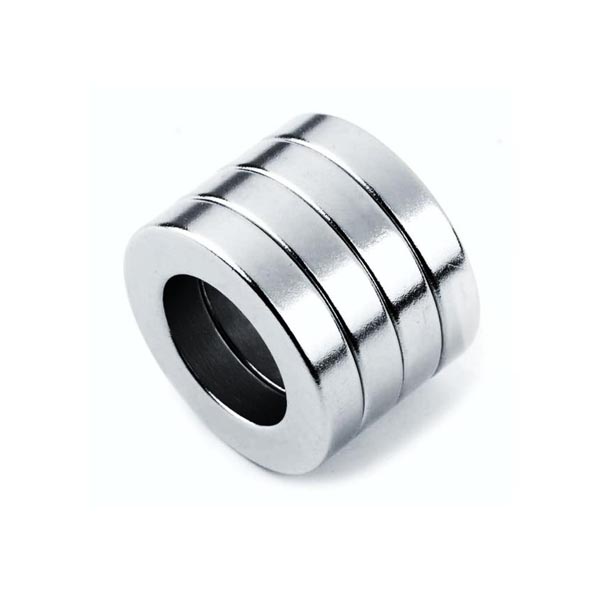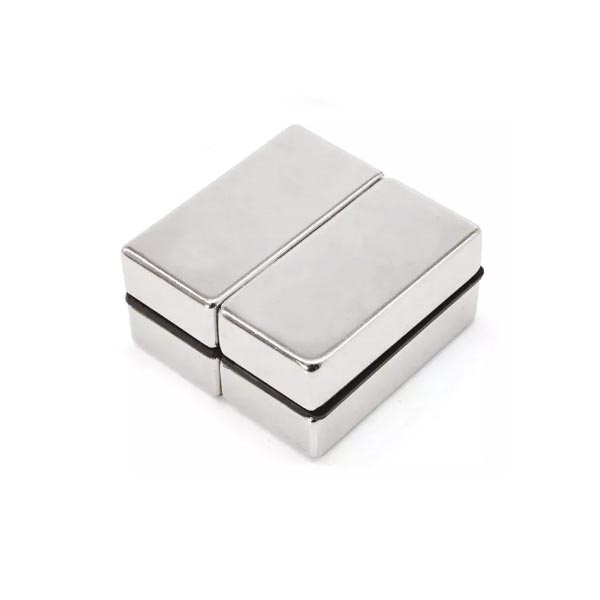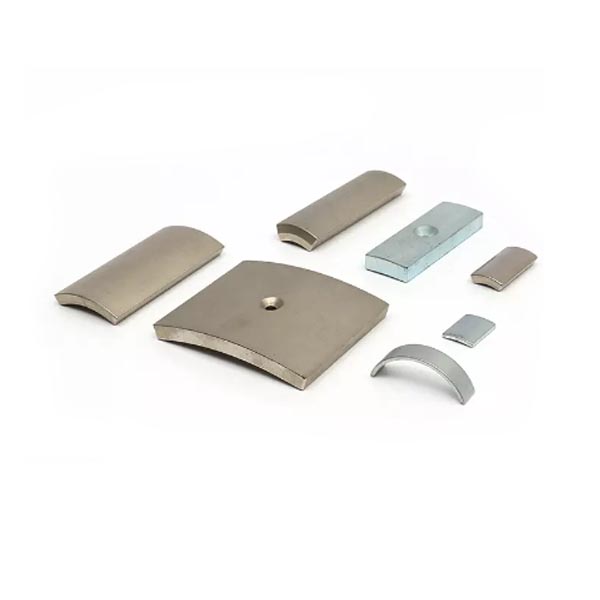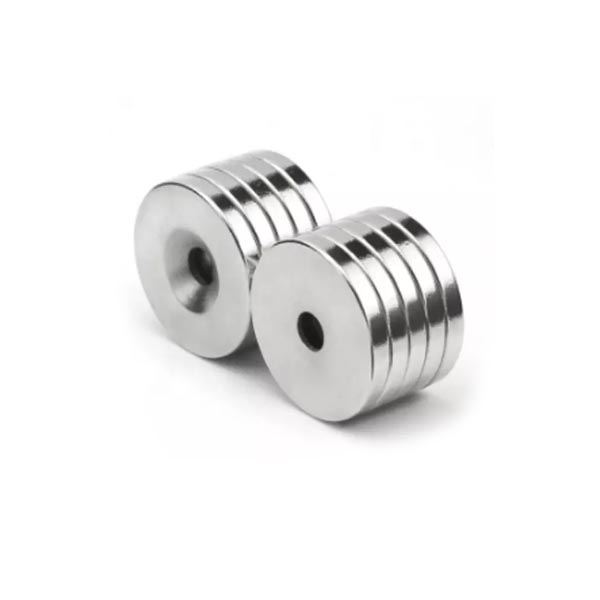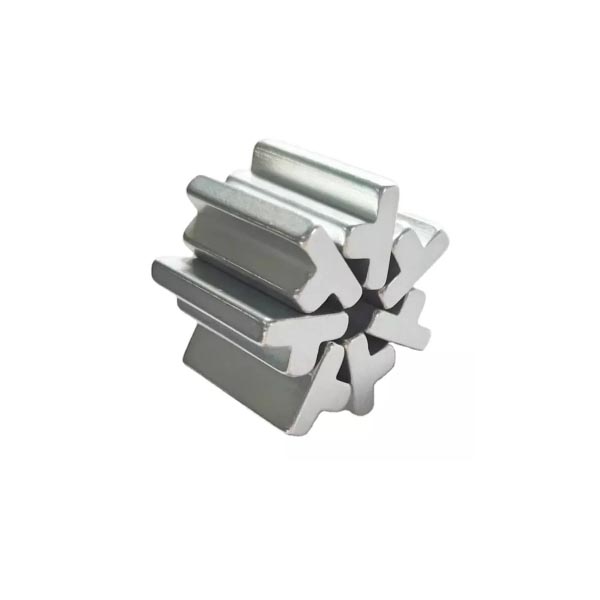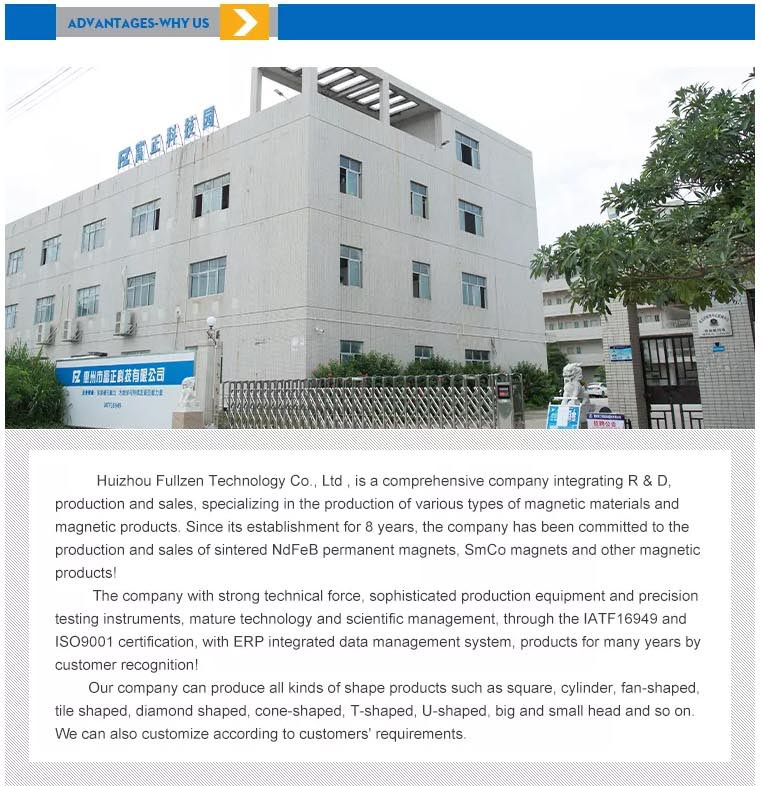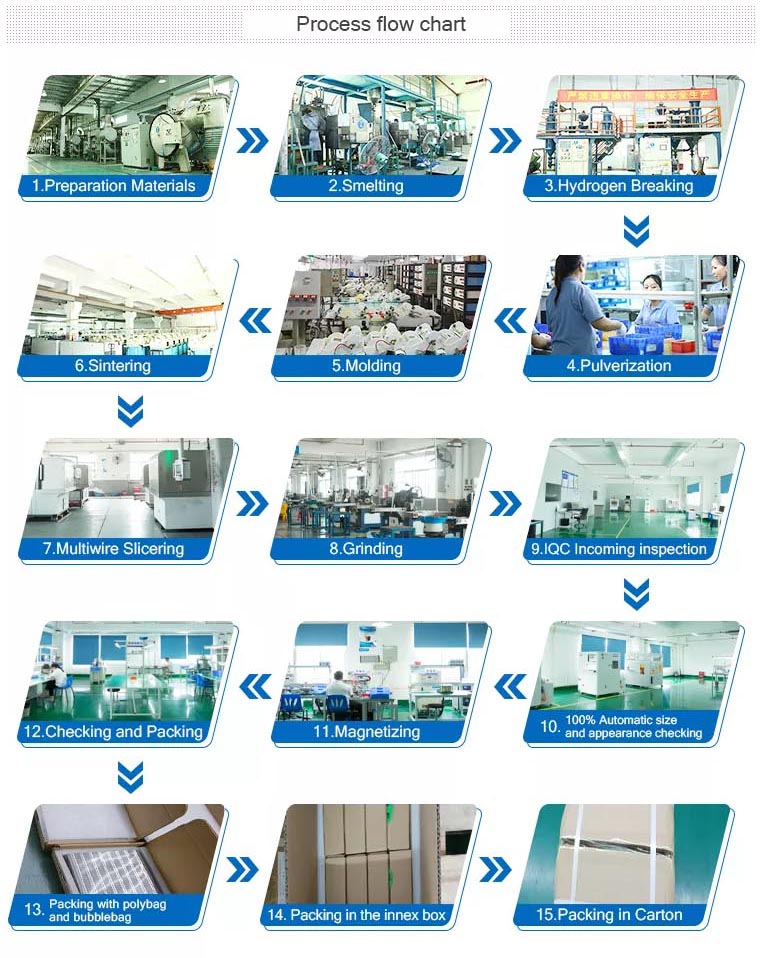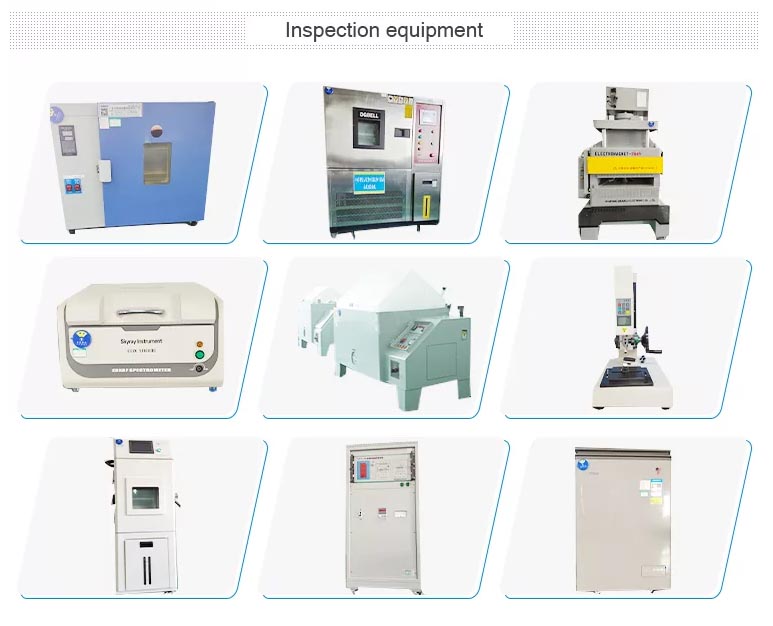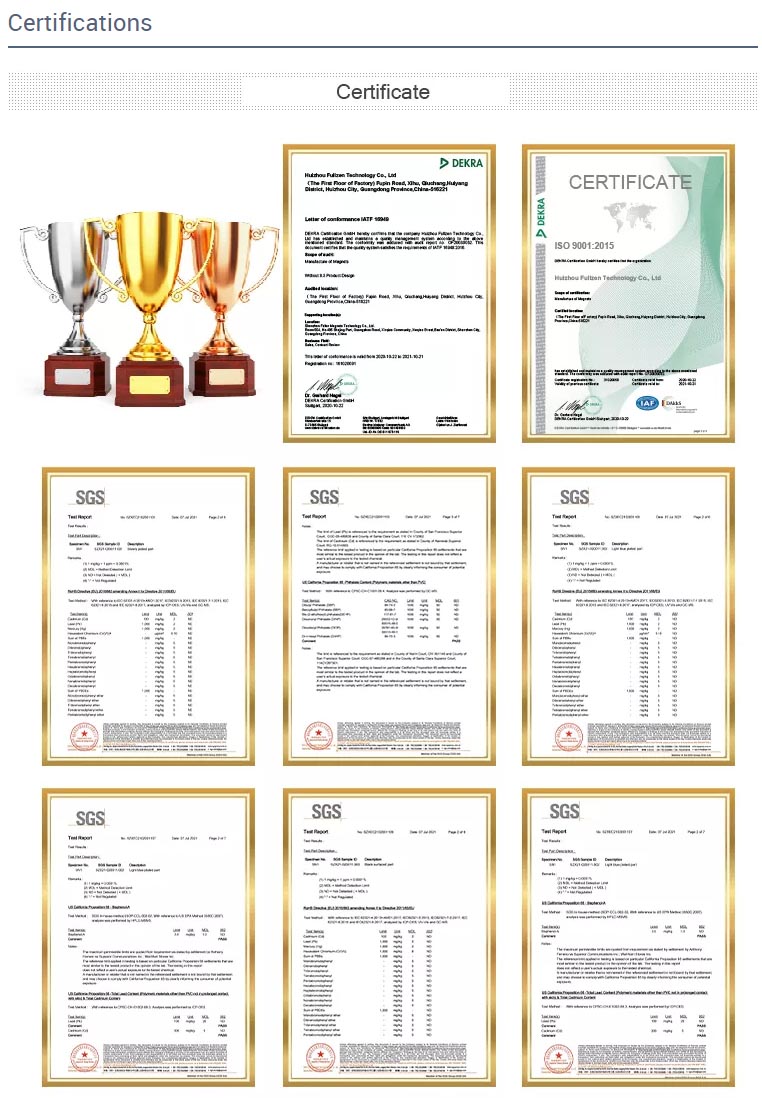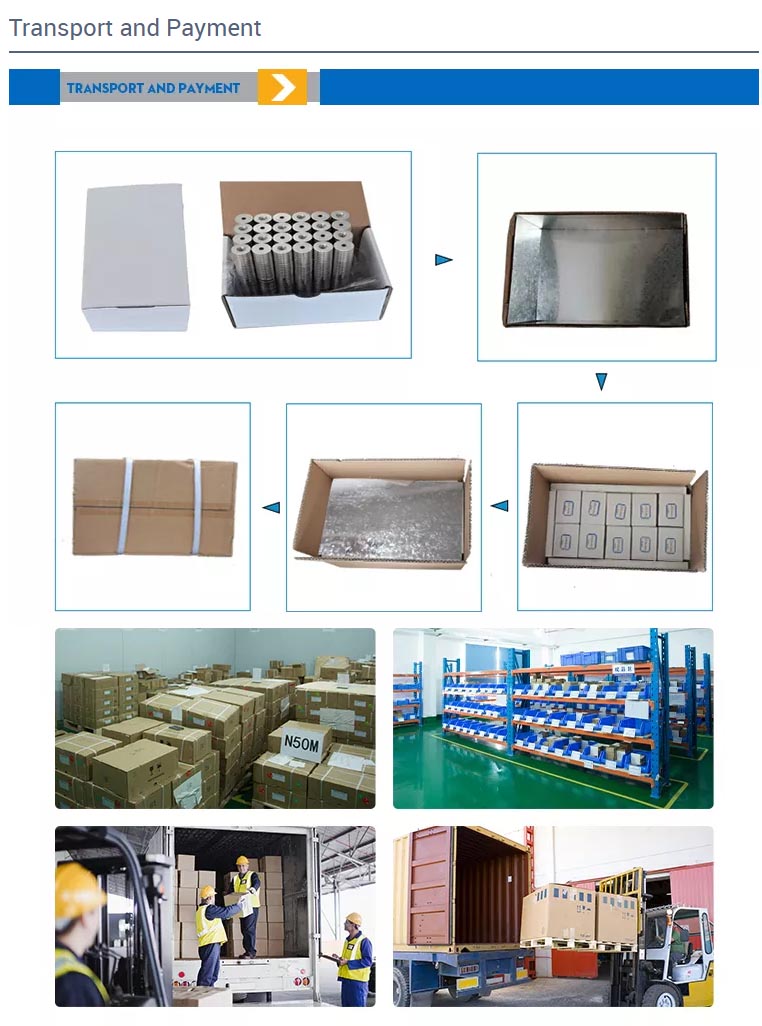Arc Neodymium Magnets Strong Magnets Supplier | Fullzen
Short Description:
Arc neodymium magnets are a type of rare earth magnets which possess a specific shape – that of an arc or segment. They are made using a combination of neodymium, iron, and boron (NdFeB), just like regular neodymium magnets. However, the design is tailored to better suit some applications where a curved surface is required. This type of magnet is usually utilized in applications that require both strong magnets and particular geometry.
The powerful magnetic pull of neodymium magnets is due to their unique atomic structure. The NdFeB molecules align themselves in the same direction to create a magnetic field that is more than ten times stronger than other types of commercial magnets. This feature makes them highly suitable for use in numerous applications, including electronics, motors, and medical equipment. Moreover, the strength of the magnet is not affected by its small size, making it ideal for use in tight spaces.
Arc magnets – neodymium magnet are mostly used in the manufacturing of motors and generators. For instance, arc neodymium magnets are used in the brushless DC motors of electric vehicles. Their size and shape enable them to produce higher torque when compared to other types of magnets. One advantage of arc neodymium magnets over other magnet types is that they can create a near-perfect magnetic field with minimal field strength losses.
Product Detail
Company profile
Product Tags
Small neodymium cube magnets
Apart from motors, arc neodymium magnets are applied in magnetic couplings and sensor applications where they permit measurements to be made at a particular angle. Their curvature can be customized to specific degrees and tolerances, making them less prone to errors.
However, it is essential to remember that arc neodymium magnets are highly susceptible to corrosion. In wet or humid environments, they tend to rust over time. Therefore, they need to be coated with a protective layer to extend their lifespan.
In conclusion, arc neodymium magnets are a vital component in various applications. Their unique shape and powerful magnetic force make them ideal for use in the automotive, medical, and electronics industries, among others. While their corrosion resistance leaves something to be desired, the benefits of these magnets outweigh the drawbacks, especially in applications where geometric constraints are a significant challenge.
We sell all grades of neodymium magnets, custom shapes, sizes, and coatings.
Fast Global Shipping: Meet standard air and sea secure packing, More than 10 years of export experience
Customized is Available: Please offer a drawing for your special design
Affordable Price: Choosing the most suitable quality of products means effective cost savings.

Magnetic Product Description:
This neodymium magnetic disc has a diameter of 50mm and a height of 25mm. It has a magnetic flux reading of 4664 Gauss and a pull force of 68.22 kilos.
Uses For Our Strong Rare Earth Disc Magnets:
Strong magnets, like this Rare Earth disc, project a powerful magnetic field that is capable of penetrating solid materials such as timber, glass or plastic. This ability has practical applications for tradespeople and engineers where strong magnets can be used to detect metal or become components in sensitive alarm systems and security locks.
FAQ
Curved magnets are not inherently stronger than straight magnets in terms of their magnetic field strength. The strength of a magnet is primarily determined by its material composition, size, and magnetic domain alignment, rather than its shape.
A curved magnet is often referred to as an "arc magnet." An arc magnet is a type of magnet that has a curved or arc-shaped geometry. It is commonly used in various applications where the magnetic field needs to be concentrated along a specific curved path or where the shape of the magnet is essential to the functionality of the device.
Arc magnets are manufactured by cutting larger magnets into segments with curved shapes, resulting in individual segments that resemble sections of a circle or arc. The most common materials used for arc magnets are neodymium (NdFeB) and samarium cobalt (SmCo), both of which are strong permanent magnet materials.
Curved or arc magnets are used in DC (direct current) motors for several reasons that leverage their specific shape and magnetic properties to enhance motor performance. Here's why curved magnets are used in DC motors:
- Efficient Magnetic Field Generation
- Enhanced Torque Generation
- Compact Design
- Optimized Magnetic Circuits
- Higher Power Density
- Reduced Cogging
- Customizable Magnetic Fields
- Improved Efficiency
Your Custom Custom Neodymium Magnets Project
Fullzen Magnetics has more than 10 years of experience in the design and manufacture of custom rare earth magnets. Send us a request for quote or contact us today to discuss your project's specialty requirements, and our experienced team of engineers will help you determine the most cost effective way of providing you with what you need.Send us your specifications detailing your custom magnet application.













